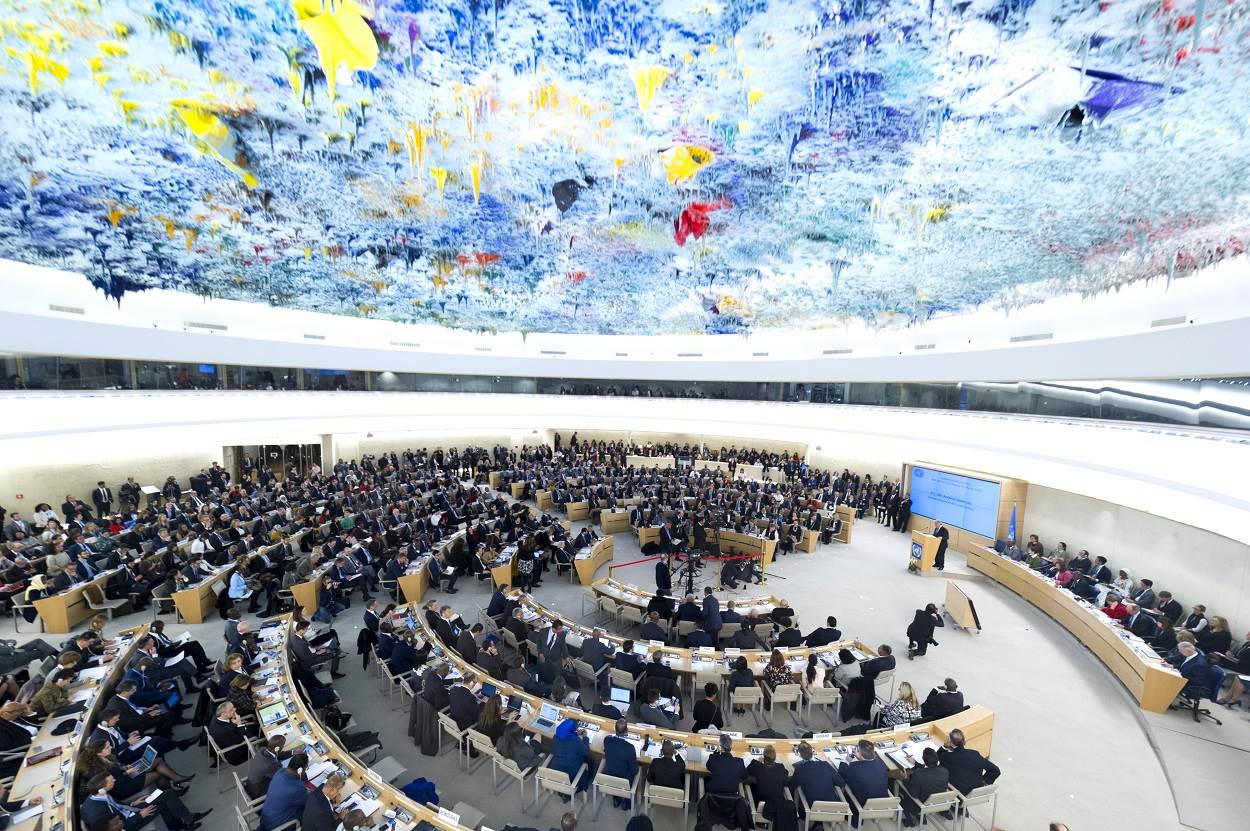Ávarp í umræðu um tungumál frumbyggja
Fastafulltrúi Danmerkur flutti í dag ávarp fyrir hönd Norðurlandanna, þ.m.t. Íslands, og Eystrasaltslandanna í sérstakri umræðu um mannréttindi frumbyggja þar sem tungumál frumbyggja voru til umræðu.
Human Rights Council 42nd Session
NORDIC-BALTIC STATEMENT
Delivered by Denmark
Annual Panel Discussion on the rights of indigenous peoples, on the promotion and preservation of indigenous languages
18 September 2019
[Check against delivery]
Thank you, Mr. President
I have the honour to make this statement on behalf of the Nordic-Baltic countries [1] for whom the promotion and protection of the rights of indigenous peoples is a longstanding priority. We hope that the International Year of Indigenous Languages will inspire member states to facilitate the strengthening of indigenous languages.
Language is an essential component of the exercise of human rights and fundamental freedoms. It is the foundation for developing and transmitting tradition, culture and knowledge – and for ensuring effective participation in private and public life.
A range of international instruments highlight the importance of indigenous languages including the UNDRIP and the Convention on the Rights of the Child.
It is also important to ensure frameworks that protect indigenous languages in national legislation; some examples are the Act on Greenland Self-Government, which states that Greenlandic shall be the official language in Greenland, [2] and the Norwegian Sami Act, which provides users of Sami languages the right to contact public authorities and receive public services in North, Lule and South Sami language.
We must also raise awareness of indigenous languages. As part of the International Year, the Sámi Parliaments are carrying out projects to improve the visibility of Sámi languages, produce materials and events to support learning them, and encourage their use, especially among children and youth.
In closing, we kindly ask the Panel’s reflections on how all stakeholders can better integrate and facilitate the strengthening of indigenous languages?
Thank you.
[1] Norway, Finland, Iceland, Sweden, Estonia, Lithuania, Latvia, and Denmark together with Greenland.
[2] Note in this regard also Inatsisartut Act No. 7 of 19 May 2010 on Language Policy, which acknowledges that Greenlandic consists of three main dialects spoken in East and West Greenland and in Thule, hereby acknowledging some of the linguistic differences in Greenland.

